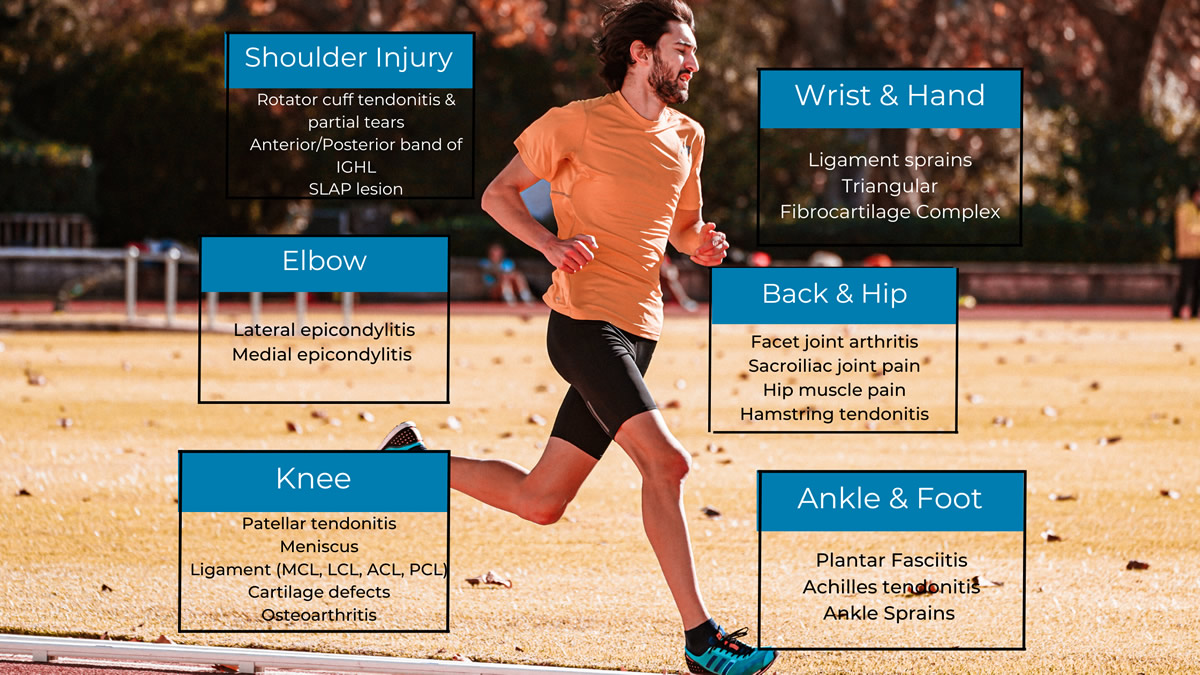
Get Back to Life with Platelet-Rich Plasma (PRP)
Over the years, platelet-rich plasma (PRP) injections have gained popularity, thanks to famous athletes like Tiger Woods and Rafael Nadal. These injections offer a promising solution to chronic injuries, speeding up recovery and reducing inflammation. In this article, Dr. Matt Thornburg will answer your questions about PRP injections, covering how they work, their safety, and their effectiveness in treating chronic injuries.
What is PRP?
PRP stands for platelet-rich plasma, also known as autologous blood concentrate (APC). It involves extracting platelet cells from your own blood, which contain growth factors that aid in the healing process of chronic injuries. By injecting a concentrated solution of platelets into the injured area, PRP stimulates natural healing.
Why does PRP work?
Human platelets are naturally rich in connective tissue growth factors. When these growth factors are injected into damaged ligaments and tendons, they initiate a natural repair process. PRP effectively recreates and stimulates the body's own healing mechanisms.

How is PRP done?
At the COG Surgery Center, a small amount of blood is drawn from the patient and processed in a specialized centrifuge. This separates the platelets from the red blood cells, resulting in a concentrated platelet solution. The platelet concentrate is then used for treatment. To minimize discomfort, the painful area is numbed with lidocaine before the injection. The entire process, from blood draw to injection, takes approximately 30-45 minutes.
Which chronic injuries can be treated with PRP injections?
PRP injections can be used to treat various chronic injuries. Research has shown their effectiveness in repairing tendon injuries such as tendonitis, achilles tendonitis, as well as ligament and muscle injuries like osteoarthritis, ligament sprains, muscle strains, and chronic wounds. PRP injections are particularly beneficial for improving pain and stiffness, according to Dr. Thornburg.

How often are injections given?
After the initial treatment, a follow-up visit is scheduled 6-8 weeks later. While some patients respond well to a single treatment, others may require 1-3 additional injections.
How long does it take to see results from PRP injections?
The healing process varies for each individual. Some patients notice improvements within a few weeks, while others may experience progress over several months. Patience is key as PRP injections stimulate the body's natural healing mechanisms. Maintain open communication with your healthcare provider throughout the treatment.
Are there any risks or side effects of PRP injections?
PRP injections are generally safe, as they use components from your own blood. However, like any medical procedure, there are some risks involved. The most common side effects include temporary pain, discomfort, bruising, swelling, or infection at the injection site. While rare, there is also a slight risk of infection, bleeding, or nerve damage associated with needle placement. Your doctor will discuss these risks with you before starting treatment.
Are PRP injections covered by insurance?
Currently, Medicare does not cover PRP injections, and some insurance companies consider it an experimental or emerging treatment. The billing process for this procedure may still be unclear. For any insurance or payment-related questions, reach out to our billing department for assistance.
Platelet-rich plasma (PRP) injections offer a promising solution for treating chronic injuries. By utilizing your body's own healing properties, PRP injections can accelerate recovery, alleviate pain, and enhance functionality. While not suitable for everyone, PRP injections have shown positive outcomes for many individuals. If you're struggling with a chronic injury, consult with a healthcare professional to determine if PRP injections are a viable option for you.
Katie Powderly, Clinical Assistant
573-441-3783
